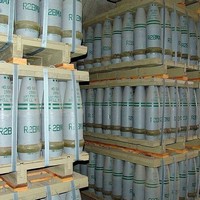Last week, after the United Nations Security Council again deadlocked on the Syrian issue, calls were heard for Western and Middle Eastern powers to pursue a Kosovo-style intervention that would bypass the council altogether to bring about regime change in Damascus. At the beginning of this week, a spokesman for the Syrian Foreign Ministry, Jihad Makdissi, declared that while the Syrian government would never unleash its previously unconfirmed stockpiles of chemical weapons to suppress the rebellion, it might use them in the event that “Syria faces external aggression.”
Just as Syria’s downing of a Turkish RF-4E reconnaissance aircraft in late-June followed weeks of casual comments about a Libya-style air campaign to aid anti-regime forces, the timing of this latest announcement cannot be accidental. Damascus is once again signaling to the West that Syria will be a harder nut to crack than Libya. And while Makdissi and other government officials tried to walk back his comments in the days that followed, when it comes to the Syria crisis, the WMD issue is now squarely on the table.
Leaving aside the separate issue of whether the Syrian WMD program has been underestimated or exaggerated and assuming that the Syrian regime does have the ability to produce and deliver some nasty weapons throughout the region -- including targets in Israel and Turkey -- then how the Syrian crisis is handled in the coming weeks could, in turn, have major repercussions for the international system as a whole.

